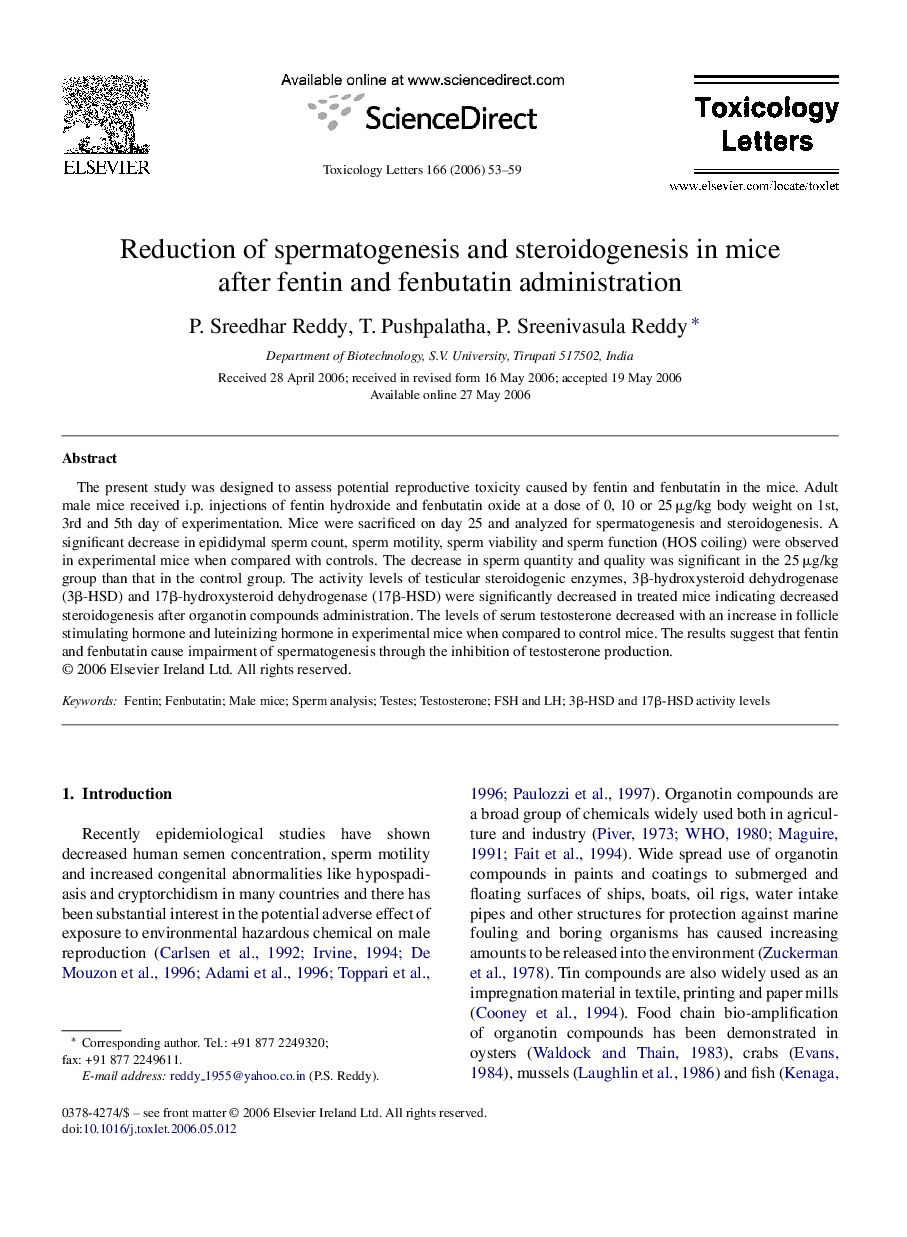| Article ID | Journal | Published Year | Pages | File Type |
|---|---|---|---|---|
| 2602337 | Toxicology Letters | 2006 | 7 Pages |
The present study was designed to assess potential reproductive toxicity caused by fentin and fenbutatin in the mice. Adult male mice received i.p. injections of fentin hydroxide and fenbutatin oxide at a dose of 0, 10 or 25 μg/kg body weight on 1st, 3rd and 5th day of experimentation. Mice were sacrificed on day 25 and analyzed for spermatogenesis and steroidogenesis. A significant decrease in epididymal sperm count, sperm motility, sperm viability and sperm function (HOS coiling) were observed in experimental mice when compared with controls. The decrease in sperm quantity and quality was significant in the 25 μg/kg group than that in the control group. The activity levels of testicular steroidogenic enzymes, 3β-hydroxysteroid dehydrogenase (3β-HSD) and 17β-hydroxysteroid dehydrogenase (17β-HSD) were significantly decreased in treated mice indicating decreased steroidogenesis after organotin compounds administration. The levels of serum testosterone decreased with an increase in follicle stimulating hormone and luteinizing hormone in experimental mice when compared to control mice. The results suggest that fentin and fenbutatin cause impairment of spermatogenesis through the inhibition of testosterone production.
